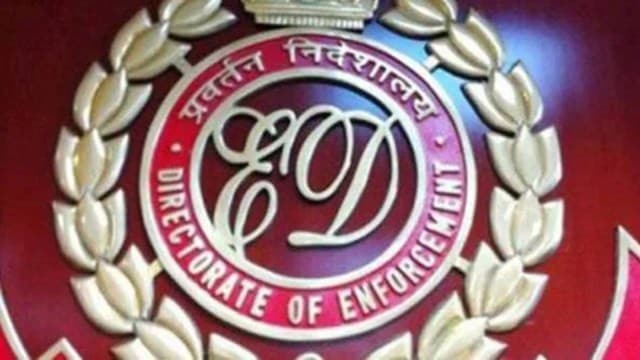Additional Solicitor General S V Raju, who has appeared in courts for the Enforcement Directorate in many high-profile cases of alleged money laundering, cautioned the agency Thursday against hasty arrests, saying “use your power to arrest not liberally, but sparingly” and do “not use it at an early stage” of a case.
Addressing ED officials at an event to mark the agency’s foundation day at the Bharat Mandapam in New Delhi, Raju suggested that arrests made in the early stages of a case were not only counterproductive to investigation but also to the outcome of the case in courts.

“Arrest is very crucial for all agencies. But it is the threat of arrest that makes people disclose details in a case. After they are arrested, their conduct changes because the threat is over. You must use your power to arrest not liberally but sparingly. And you must not use it at an early stage of the case,” he said.
Story continues below this ad
According to Raju, the requirement of the Prevention of Money Laundering Act (PMLA) is that there has to be “grounds of arrest” and there should be “reason to believe” (that the accused is guilty of the offence).
“If you arrest him at an early stage, you may not have the grounds of arrest and the ‘reasons to believe’ to undergo the scrutiny of the court. If you delay the arrest, you will get proper appreciation from the court. Many times the courts have said the grounds of arrest are not proper,” he said.
Incidentally, former Delhi Chief Minister Arvind Kejriwal had challenged his arrest by the ED in the Delhi liquor policy case on precisely these grounds. He was granted bail by the court in July 2024, but the court sent his plea against the arrest to a separate bench where it remains pending.
Raju said hasty arrests also lead to default bail. “If you arrest the person early, your investigation is not over and you cannot file a chargesheet within 60 days. And the person gets default bail. He may be the worst of the offenders, but because you have arrested him early, he gets default bail,” he said.
Story continues below this ad
Early arrest, he said, also defeats the purpose of the provision of Section 50 of the PMLA. Section 50 of the PMLA grants powers to authorities regarding summons, production of documents and taking evidence during investigations and proceedings under the Act.
“Statements recorded under Section 50 are admissible as evidence. But if a person is arrested, the statement taken under Section 50 becomes vulnerable and can no longer be used as evidence. So, my suggestion is don’t be hasty in arrests,” Raju said.
He said the ED must not only make an individual an accused but also the company whose affairs he or she may be managing. The Supreme Court has said that only if the company is guilty can the person managing its affairs be vicariously liable, he said.
ED Director Rahul Navin said that contrary to popular perception, ED had a conviction rate of over 93%. He conceded that the ED needed to speed up its investigations.
Story continues below this ad
“We acknowledge candidly that several PMLA investigations are pending for a very long time, and one of the focus areas this year would be to undertake efforts to complete the investigation and file the final prosecution complaint and prayer for confiscation of criminal property before the special courts. We understand that long pending investigations may fail to create deterrence and instead attract criticism,” he said.
According to Navin, despite the PMLA coming into force in 2005, it remained largely ineffective in its initial years with less than 200 cases recorded a year and that too mostly restricted to drug-related offences.
The total criminal property attached was only Rs 5,171 crore until March 31, 2014, with the first prosecution complaint being filed only in 2012, he said.
“After 2014, however, there has been a significant step-up in enforcement activity and from 2014 to 2024, 5,113 new PMLA investigations were initiated, averaging more than 500 cases per year. Building on this momentum, we note with satisfaction that in the Financial Year 2024-25, 775 new PMLA investigations were launched, 333 prosecution complaints were filed and notably 34 individuals were convicted,” he said.
Story continues below this ad
“During this period, ED has issued 461 provisional attachment orders valued at Rs 30,036 crore, a 44% increase in the number of attachments and a striking 141% rise in their total value compared to the previous year. As on 31st March, 2025, the total value of assets under provisional attachment stood at Rs 1,54,594 crore,” he said.
Raju said that certain rules in the PMLA provisions to take possession of an attached property needed some amendments.
He also asked the ED to focus on cryptocurrencies and hawala operators and suggested that the latter be made reporting entities and not necessarily the accused.
“Cryptocurrency must not be used for money laundering. For the purpose of detection of money laundering, my first suggestion is that you must look at hawala operators. They are not accused, but they must be made reporting entities. They must identify and verify their clients. They must maintain records. Try to amend the law and make them reporting entities,” he said.









